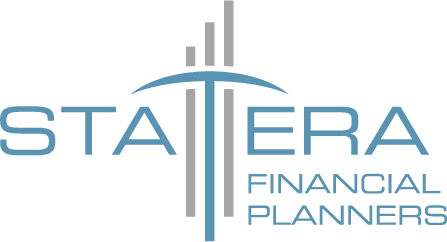Practical Steps to Boost Financial Confidence

Introduction
Financial confidence is essential for a stable and secure life. Understanding how to manage money and make informed decisions can reduce stress and help Canadians reach their financial goals. Yet, many people feel overwhelmed when it comes to their finances. This is why improving financial literacy is so important.
During Financial Literacy Month, let's focus on the "do one thing" approach recommended by the Financial Consumer Agency of Canada (FCAC). This method encourages you to take small, manageable steps to better your financial well-being. By focusing on one task at a time, you can gradually build your confidence and knowledge without feeling overwhelmed.
Simple actions such as checking your credit score, creating a budget, or consulting with a financial advisor can make a significant difference. These steps not only provide a clearer picture of your financial situation but also set the foundation for better financial habits. Let’s dive into how these actionable tips can help you boost your financial confidence and build resilience.
Understanding Financial Literacy and Its Importance
Financial literacy involves understanding and effectively using various financial skills such as budgeting, saving, and investing. Working with a financial advisor enhances your ability to make wise decisions about your money. Advisors can tailor their approach to your unique circumstances, ensuring that you manage your finances wisely and achieve your personal financial objectives.
Without professional guidance, money management and financial stress can become overwhelming. Advisors help you navigate these challenges, plan for the future, address unexpected expenses, and capitalize on financial opportunities.
Engaging with a financial advisor is a step toward financial independence. As your understanding of money management deepens with professional support, your confidence in making financial decisions grows. This combination of knowledge and confidence can lead to a more secure and prosperous future.
The "Do One Thing" Approach by FCAC
The Financial Consumer Agency of Canada (FCAC) recommends the "do one thing" approach for improving financial literacy. This method focuses on taking small, manageable steps to improve your financial health one task at a time. By breaking down financial tasks into smaller actions, you can make steady progress without feeling overwhelmed.
Each small action, like checking your credit score or creating a budget, can have a big impact on your financial confidence. The "do one thing" approach encourages you to pick one financial task to focus on and complete it before moving to the next. This helps build momentum and makes financial management less daunting.
For example, working with an advisor to review your credit score not only provides insight but also offers actionable strategies for improvement. Similarly, creating a budget with their help ensures accurate tracking of income and expenses while identifying areas for potential savings.
Each step taken in collaboration with a financial advisor builds on the last, enhancing your financial literacy and confidence. This makes the process more approachable and effective, as you benefit from expert strategies and insights.
Actionable Tips to Improve Financial Confidence
Consult with a Financial Advisor
Speaking with a financial advisor can provide valuable insights and guidance tailored to your specific financial situation. Financial advisors can help you set realistic goals, create personalized plans, and navigate complex financial products.
Steps to consult with a financial advisor:
- Research and find a certified financial advisor in your area.
- Schedule a consultation to discuss your financial goals and concerns.
- Follow their advice and develop a financial plan.
Consulting a financial advisor can make managing your finances easier. Experts can provide you with strategies to save, invest, and grow your money effectively, giving you peace of mind and confidence in your financial future.
Check Your Credit Score
Checking your credit score is a simple yet powerful way to boost your financial confidence. Your credit score gives you a snapshot of your financial health, showing how lenders view your creditworthiness. Most Canadians are eligible for free credit reports from the major credit bureaus.
Steps to check your credit score:
- Visit a reputable credit bureau's website.
- Follow the instructions to request your credit report.
- Review your credit report for any errors or signs of identity theft.
With professional insight from a financial advisor, you can address high-interest debt and improve payment timeliness, ensuring you're on the right track.
Create a Budget
Creating a budget is a fundamental step towards taking control of your finances. A budget helps you track your income, expenses, and savings. Knowing exactly where your money goes each month can help you make informed decisions and identify areas where you can cut back.
Steps to create a budget:
- List all sources of income.
- Write down all monthly expenses, including rent, utilities, groceries, and entertainment.
- Subtract expenses from income to see if you have a surplus or deficit.
- Adjust your spending as needed to ensure you live within your means.
A clear budget helps you prioritize spending and find ways to save. Over time, sticking to a budget can lead to improved financial stability and confidence. To make things simpler, work with your financial advisor to develop a strategy to address deficits or optimize surpluses.
Building Financial Resilience Through Simple Strategies
Building financial resilience means being prepared to handle financial challenges and bounce back from setbacks. Simple strategies can help you strengthen your financial position and reduce stress.
Here are some ways to build financial resilience:
- Emergency Fund: Save enough money to cover three to six months of expenses. This fund can help you deal with unexpected costs, like car repairs or medical bills.
- Debt Management: Focus on paying down high-interest debt first. Try to make more than the minimum payments to reduce the debt faster.
- Automate Savings: Set up automatic transfers to your savings account. This ensures you save regularly without thinking about it.
- Insurance: Make sure you have the necessary insurance to protect yourself and your assets. This includes health, car, and home insurance.
- Continuous Learning: Keep improving your financial knowledge. Attend workshops, read financial articles, and stay informed about financial trends.
These strategies, facilitated by a financial advisor, ensure you have a robust financial foundation, providing confidence to face financial challenges head-on.
Final Thoughts
Improving financial confidence is a journey that starts with understanding and taking small steps. By focusing on financial literacy, Canadians can make informed decisions and build a secure future. Checking your credit score, creating a budget, and consulting with a financial advisor are practical steps to get started. Building financial resilience through simple strategies ensures you're prepared for any financial challenges that come your way.
Taking control of your finances doesn't have to be overwhelming. With the right approach, you can achieve financial stability and confidence. At Statera Financial Planners, we are here to help you on this journey. Contact our financial advisors in Edmonton today to start building a stronger, more confident financial future.

As financial planners, we do not provide specific tax and legal advice. You should always consult your accountant and/or lawyer where necessary. Because of the many ways a strategy may be impacted when segmented, we prefer to communicate collectively with your external professionals to ensure that all recommendations and action plans are in the overall best interest of you, with your professionals working with common goals in mind.
You are never obligated to act on our recommendations of products, services, or advice.
